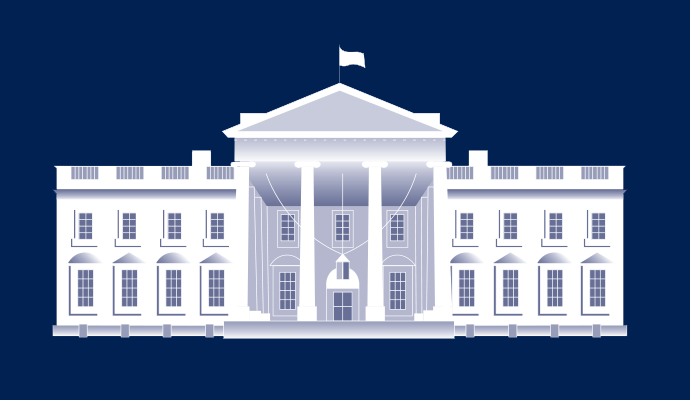Biden’s EO on US Competition Will Impact Hospital Mergers
An executive order aimed at increasing competition across industries will target healthcare consolidation and, specifically, hospital mergers.

Source: Getty Images
- An executive order has serious implications for healthcare consolidation, and specifically, hospital mergers and acquisitions.
The President signed the executive order on Friday in an effort to boost competition and lower prices for consumers across industries, including healthcare. Specifically, the executive order calls out rising prescription drug and medical device prices because of a lack of competition among manufacturers.
But the executive order will also impact another reason for increasing healthcare costs: hospital mergers and acquisitions.
“Hospital consolidation has left many areas, especially rural communities, without good options for convenient and affordable healthcare service,” the Biden-Harris administration wrote in a fact sheet on the EO.
“Thanks to unchecked mergers, the ten largest healthcare systems now control a quarter of the market. Since 2010, 139 rural hospitals have shuttered, including a high of 19 last year, in the middle of a healthcare crisis. Research shows that hospitals in consolidated markets charge far higher prices than hospitals in markets with several competitors,” the fact sheet continued.
READ MORE: Despite Drop in Healthcare Mergers and Acquisitions, Revenue Rises
Prices may be higher after consolidation because hospitals and health systems experience less pressure to reduce their costs, research has indicated.
But this line of thinking has been heavily contested by many hospital leaders, who argue that merger and acquisition deals actually benefit consumers. In fact, a 2019 analysis commissioned by the American Hospital Association (AHA) showed that annual operating experience and revenues per admissions both declined after hospitals were acquired by another organization. There were also statistically significant improvements in outcome measures of quality at acquired hospitals.
However, the new executive order has asked antitrust agencies, including the Department of Justice (DoJ) and Federal Trade Commission (FTC), to “enforce the antitrust laws vigorously,” specifically on healthcare markets. According to the executive order, healthcare markets include hospitals, as well as prescription drugs and payers.
Both DoJ and FTC have already increased scrutiny of hospital merger and acquisitions deals in the recent past. For example, the FTC announced last year that it is revamping its Merger Retrospective Program to expand and formalize retrospective analyses of consummated mergers, with a focus on deals made in healthcare. These analyses have been critical in hospital merger challenges, the agency stated.
The executive order clarified that DoJ and FTC have the ability to challenge prior mergers that the past Administration did not previously challenge and encouraged the agencies to update their hospital merger guidelines to protect consumers from the harmful effects of mergers, such as higher costs.
READ MORE: “Soft” Consolidation in Medicare ACOs Can Lead to Higher Prices
Additionally, the executive order directed HHS to bolster existing hospital price transparency rules and to finish implementation of recent bipartisan federal legislation addressing surprise billing in hospitals.
Hospital price transparency rules went into effective at the start of 2021. The rules require hospitals to publish on their public websites pricing information, including rates they negotiated with payers. The administration believes the rules will encourage competition among hospitals, resulting in lower prices.
However, hospitals have criticized the rules, contending that publicizing certain pricing information could actually harm competition. Compliance with the rules has since been spotty and inconsistent.
Hospitals have also been critical of the executive order’s impact on merger deals. AHA’s president and CEO Rick Pollack said in a statement on Friday that the executive order “falls short in several ways.”
“For example, it does not recognize the exceptional value and essential services health systems provide to their patients and communities each day,” Pollack explained. “This has been highlighted during the public health emergency of COVID-19.”
READ MORE: COVID-19 Spurs Fewer, But Larger Hospital Merger, Acquisition Deals
Hospitals faced several challenges during the pandemic, including equipment and drug shortages, implementation of virtual care when appropriate, and execution of strategies to retool operations and physical space to keep patients and staff safe. Bigger seemed to be better when it came to overcoming these challenges.
The pandemic “affirmed the importance of transformation and again validated the pursuits of scale, relevance, and intellectual capital,” Kaufman Hall stated in an April report showing continued hospital merger and acquisition activity during the pandemic. COVID-19 seemingly spurred slightly fewer, but larger deals at the start of 2021.
Despite the executive order’s claim that hospital mergers can be harmful, “[m]ergers with larger hospital systems can also provide community hospitals the scale and resources needed to improve quality and decrease costs,” Pollack stated.
These health systems can especially retain access to hospital services in some rural areas. Therefore, additional scrutiny of hospital merger deals will not guarantee improved access to care in these communities, said Chip Kahn, president and CEO of the Federation of American Hospitals (FAH).
“Miring hospitals in legal and bureaucratic red tape will simply slow critical care to the bedside. FAH has always viewed free-market competition as the best means to provide high quality care, but it is chasing a mirage to think that patient access and choice in health care can be achieved through constraining integration of health care services,” Kahn elaborated.
